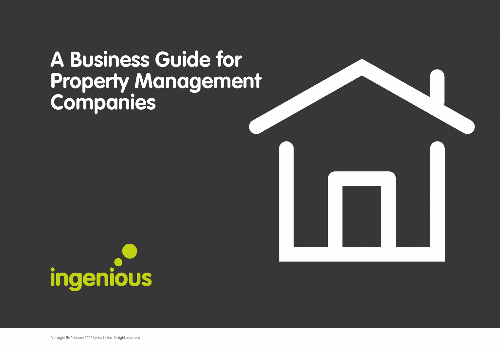
Introduction
No one wants to be the worst, but how can you be the best? This doesn’t necessarily mean being number one, just the best you can be, but why not aim for the top? We have researched London’s best property management companies to uncover what they do different and why it makes them so successful.
Throughout this post, you may see areas you already excel in; this is great! But can you do them better? Will a few adjustments be the difference between winning and losing custom?
The best property management companies once started life as start-ups. The growth they have experienced through months, years, and even decades can all be linked to doing the basics better than the rest.
This post is an extension taken from our Business Guide for Property Management companies. You can download your free copy of the guide by clicking the link below.
Status and Reputation
This goes without saying; your reputation is what defines you as a business. Your clients’ experiences ultimately drive something you have specific control over.
We cannot emphasise how important it will be for the growth of your business to understand your reputation from an external perspective. Please don’t fall into the trap of looking at your company through rose-tinted glasses; take them off and find out where you stand against your competition.
Here are some tips on recognising and understanding your REAL reputation and improving it.

Ask Your Clients
Your top 10 clients are likely to provide feedback from an open request. The most straightforward measure is to draft a short survey asking them for thoughts and opinions on an area of your business you feel you do great and those you think have room for improvement.
Link to an example real estate survey template.
Other clients may need further incentives to provide unbiased and constructive feedback. Consider a focus group; these have proven to be the perfect environment to source valid feedback due to the unpressured setting and single objective; to improve.
Remember that people are ten times more likely to complain than send praise. Be realistic about the responses you will receive and how constructive you can make improvements. If you expect your ego to be stroked, your reputation may not be as good as you think!
Monitor Your Social Media
The new dawn of client expectation has been discussed across social media. As a quick and easy place for people to say what they think, social media will significantly influence how your brand is perceived and how they correspond to your reputation.
A simple throw-away comment from an unhappy client could be the first comment a new prospect sees when researching you. It would be unrealistic to suggest you respond to everyone who mentions you, but what you can do is monitor your brand online and the conversations. Reach out to the ones you feel are essential or justified.
A list of social monitoring tools can be found below, or you can use each platform to configure custom alerts.
Get Notifications or Alerts from Online Review Sites
If you haven’t already done so, connect to Google My Business. You can manage and respond to all your reviews and set up alerts for when new reviews or comments arrive.
As Google is the largest search engine online, you’ll want to start here. The value of positive reviews will make you stand out with local searches. As such, begin adding a review widget with all your communication types to encourage more people to leave reviews.
Link to Google My Business.
Other than Google, you may already have an independent review account with another provider such as Trust Pilot, All Agents, Feefo, or Reputation. They can become expensive over time, but the value of a verified review could lead to winning business from a competitor.

Search Your Business
Running a search of your business will be the most important task you undertake when reviewing your reputation. There is no hiding place online; you will see the good, the bad, and a little of the ugly.
Open a private or incognito tab on your browser and run a search of your business name. Use variations of the search to understand what has been written about your business.
Gather the information and run a similar search on Google Alerts; this will likely show more intricate mentions of your business than full articles.
Optional: Use Automated Tools
Monitoring and managing your reputation are time-consuming but worth their weight in gold. Many businesses we encounter have dedicated employees, but we appreciate not every company will be able to do so. For this reason, we would recommend using a list of excellent, automated tools to ease the workload on your staff.
The following list isn’t affiliated with Ingenious; this is an unbiased and impartial list of tools that we have used or tested as being comprehensive and affordable.
- Hootsuite – Social Media Monitoring
- Google Alerts – Monitor the Web
- Brand 24 – Brand Ambassadors
- Chat Meter – Multiple Locations Management
Make sure you align your company culture to manage your reputation; this will include:
- Go above and beyond with your customer service
- Act with integrity
- Communicate promptly and honestly
- Give something back
Finally, be human! We all make mistakes; how we respond to them and act upon them sets us apart.
Service Value and Speed
How would you compare your service value to your competitors? What do you do that adds value to your clients or tenants?
Some things for Property Management companies are a given; they are expected of you, but how well do you deliver them? In this section, we look at the core elements you can gain some weight over your competitors.
Remember, you don’t have to reinvent the wheel here. Your clients are looking for their expectations to be met or exceeded.

Stand-Out Communication
Look at your communication tactics with your clients and prospects. Do you deliver on all the goals you have set? Stand-out communication can differentiate you from the competition and are great for winning new business.
Effective communication sounds simple, but many companies struggle to proactively manage their communication strategy due to the ‘unknown’ situations. A clear, well managed end-to-end communication strategy should adapt and evolve based on your client’s wants and needs.
Managing client communications effectively isn’t a sole responsibility; it requires your team to align and work from the same page. Internal communication is just as important, if not more, as you aim to provide the same level of service to all clients.
39% of surveyed employees believe that people
in their organisation don’t collaborate enough.
Queens University
Superior Organisation
The best property management companies collaborate between teams to be highly efficient and organised when dealing with clients. A company’s culture will define how well you co-work and manage queries.
We are under the assumption you will be using some form of property management software, either external or in-house. Use this to your advantage. There is a gap in the market to excel in customer service by ensuring your whole team is super organised and working from the same page.
Use the software to track and log events, outcomes, and response times.
Relationship Building
Engaging with people is part and part of every business; you will find some of your staff are natural at building relationships on a deeper level, and others may need a gentle nudge or coaching.
Here are a few tips to assist relationship building (from your colleagues, senior management, clients, prospects, partnerships, or anyone else that requires your time).
82% of UK office workers
demand more team-building events
Lunch Break Bonding Survey
- Share your knowledge with people around you
- Communicate often. Video calling trumps a call, email, or message
- Over deliver on your promises
- Understand your personal responsibilities and own them
- Learn the art of listening before acting


